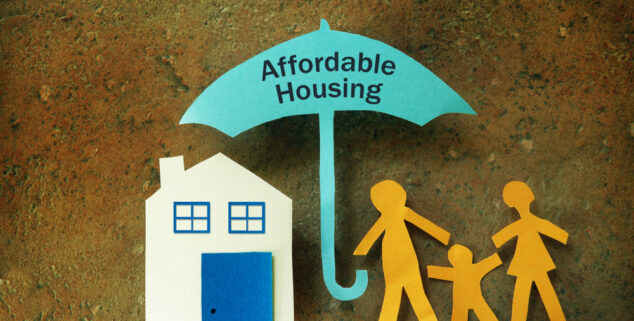Budget-friendly Homeownership Options for First-Time Homebuyers
As the real estate market continues to develop, newbie buyers encounter one-of-a-kind obstacles in securing inexpensive homeownership options. Various resources, consisting of federal government aid programs, low-down-payment mortgages, and targeted gives, have actually emerged to ease monetary pressures. These initiatives not just assist in homeownership however also foster community security and financial growth. Navigating these choices can be complex, and understanding which paths are most helpful needs mindful factor to consider. What approaches can prospective property owners use to optimize their opportunities in this landscape?
Federal Government Assistance Programs
Federal government assistance programs play an essential duty in making homeownership achievable for many individuals and family members. These programs aim to relieve the financial problem connected with buying a home, specifically for novice customers. By providing financial assistance, grants, and tax incentives, government efforts aid bridge the space in between rising housing expenses and the buying power of possible house owners.
Numerous programs are available at the federal, state, and local levels. The Federal Housing Administration (FHA) offers insurance policy on finances, allowing lenders to supply much more beneficial terms, such as lower down settlements and reduced rate of interest rates. Additionally, state and city governments often have their own efforts, which might include deposit assistance programs, homebuyer education programs, and desirable home mortgage terms.
These programs are created to deal with the unique difficulties dealt with by low- to moderate-income family members, consisting of restricted cost savings and credit report. By cultivating an atmosphere where homeownership is much more easily accessible, entitlement program programs not only sustain private goals however also contribute to area stability and financial development. Recognizing and making use of these resources can considerably improve the potential customers of successful homeownership.
Low-Down-Payment Mortgages
For several aspiring property owners, low-down-payment home mortgages present a viable path to homeownership, particularly in today's tough housing market. These home mortgage options typically need down repayments ranging from 3% to 5%, making it less complicated for novice customers to enter the marketplace without the worry of saving for a significant down payment.
Different loan providers supply low-down-payment programs, including traditional fundings backed by Fannie Mae and Freddie Mac, along with government-backed options like FHA loans. These home mortgages are designed to accommodate individuals with restricted financial savings while still supplying affordable interest rates. Significantly, they permit purchasers to maintain even more money for other essential costs, such as relocating prices, home evaluations, and prospective improvements.
However, potential home owners ought to be conscious of the compromises related to low-down-payment mortgages. A smaller deposit may result in greater regular monthly settlements and the need of exclusive home mortgage insurance (PMI), which shields lenders in case of default. For that reason, it is important for novice purchasers to carry out thorough research and seek advice from with home mortgage specialists, guaranteeing they select a low-down-payment option that aligns with their long-term economic objectives. Affordable Homeownership.
First-Time Homebuyer Grants
Several first-time buyers discover that gives can dramatically relieve the economic worry of purchasing a home, enhancing low-down-payment mortgage choices. These gives, frequently supplied by state and non-profit organizations or regional governments, use financial assistance that does not require repayment, making them an appealing option for those going into the housing market.
Eligibility for first-time buyer gives normally relies on revenue, creditworthiness, and the acquisition price of the home. Numerous programs are created to aid reduced- to moderate-income family members, making sure that assistance gets to those who need it most. The application procedure frequently includes paperwork of economic standing, homebuyer education and learning courses, and in some cases even a dedication to remain in the home for a certain duration.
The quantity useful varies widely, with some grants providing a number of thousand dollars to assist cover shutting find expenses or down settlements. Researching offered gives in your location is essential, as programs frequently change and might have details needs. By leveraging these funds, new homebuyers can make homeownership extra obtainable, eventually attaining their imagine owning a home while minimizing the first economic pressure.
Ingenious Neighborhood Campaigns
Cutting-edge area campaigns are playing an important function in expanding budget friendly homeownership alternatives for homeowners. These campaigns usually entail collaborative efforts in between neighborhood governments, non-profit companies, and economic sector stakeholders to develop sustainable real estate options customized to area requirements.
One significant method is the facility of neighborhood land trust funds (CLTs), which allow residents to acquire homes while the land remains had by the count on. This version assists maintain price gradually and avoids speculative price boosts. Additionally, CLTs typically offer educational sources and support solutions to equip new homebuyers.
One more effective campaign is the development of mixed-income real estate jobs, which blend budget friendly systems with market-rate homes. This strategy promotes comprehensive neighborhoods and decreases the preconception typically related to low-income housing. Neighborhood governments are progressively sustaining zoning reforms to assist in the construction of accessory dwelling units (ADUs), which can supply added rental revenue for homeowners while raising real estate availability.

Tips for Budgeting and Saving

Next, establish a committed financial savings account especially for your future home acquisition. Objective to conserve a percent of your income continually, ideally 20% or even more, to construct a substantial down repayment. Make use of automation devices, such as straight deposit or automatic transfers, to make saving much easier and extra consistent.
Furthermore, consider adopting the 50/30/20 regulation: allot 50% of your income to needs, 30% to desires, and 20% to Click This Link financial savings and financial debt repayment - Affordable Homeownership. This method promotes well balanced monetary wellness

Conclusion
In summary, cost effective homeownership choices for novice buyers incorporate various resources such as government support programs, low-down-payment home loans, and grants. By leveraging these financial devices, people can browse the intricacies of homeownership, inevitably adding to a much more fair housing landscape.
As the real estate market continues to progress, newbie property buyers deal with distinct difficulties in safeguarding affordable homeownership alternatives. By cultivating a setting Visit This Link where homeownership is a lot more obtainable, federal government aid programs not just sustain private aspirations however additionally add to community security and financial growth. By leveraging these financial resources, newbie property buyers can make homeownership much more accessible, inevitably accomplishing their desire of owning a home while reducing the initial monetary strain.
In recap, budget-friendly homeownership options for first-time buyers include numerous resources such as government assistance programs, low-down-payment mortgages, and gives. By leveraging these financial devices, individuals can navigate the intricacies of homeownership, ultimately adding to a more fair housing landscape.